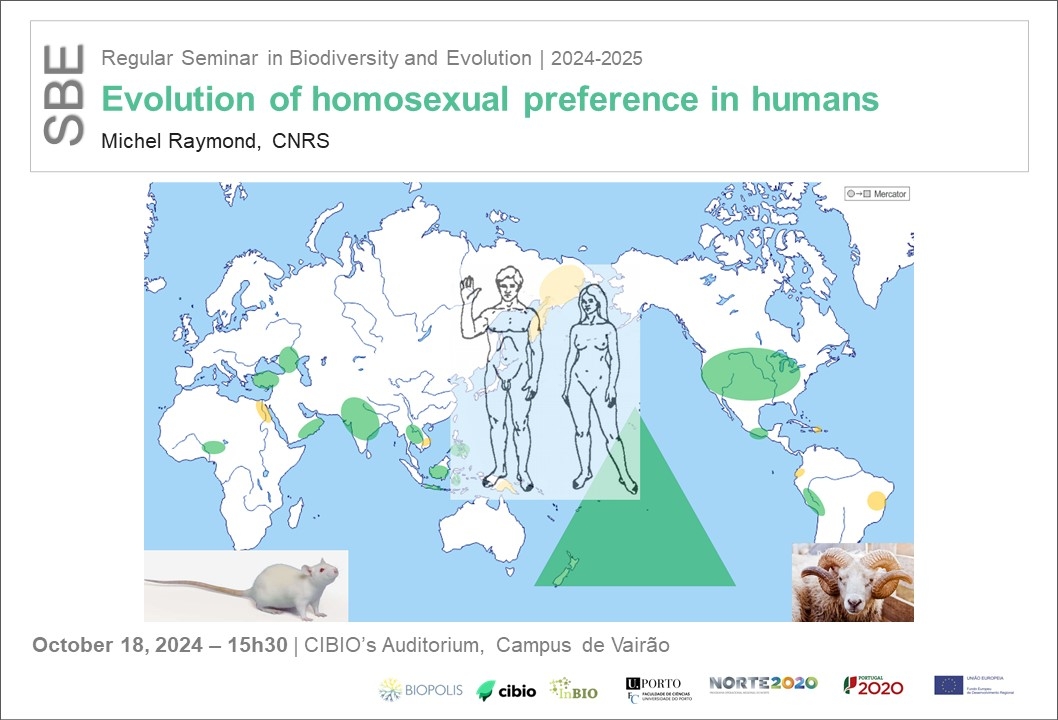Evolution of homosexual preference in humans
Event
REGULAR SEMINAR IN BIODIVERSITY AND EVOLUTION
October 18th, 2024
Michel Raymond, CNRS | 15h30 | BIOPOLIS-CIBIO, Campus de Vairão

REGULAR SEMINAR IN BIODIVERSITY AND EVOLUTION
Male homosexual orientation remains a Darwinian paradox (a heritable trait with a high direct reproductive cost) because there is no consensus on its evolutionary (ultimate) determinants. Much work in recent decades has focused on kin selection, with the conclusion that this explanation alone seems insufficient and cannot explain the origin or maintenance of same-sex sexual preference in our species. Several other evolutionary explanations, such as pleiotropic effects, are now being investigated, although there is still no consensus on the nature of the advantageous trait that would be selectively favoured and associated with same-sex attraction. An intriguing feature of homosexual men is their higher male birth order compared to heterosexual men, which is best explained by a fraternal birth order effect rather than a pleiotropic effect on female fertility. However, the effect of male birth order on sexual orientation requires an evolutionary explanation. An overall picture of possible evolutionary determinants of same-sex orientation is presented, together with new field data from a third gender society.
Michel Raymond is an evolutionary biologist at the interface between evolutionary biology and the human sciences. He is a CNRS research director at the ISEM (Institute of Evolutionary Sciences of Montpellier). He first developed research on the genetics of adaptation, in particular the evolution of insecticide resistance in mosquitoes at the gene and population level, using and developing population genetics tools. He then set up an evolutionary anthropology team to apply evolutionary tools to human affairs. He has developed research in family ecology, dietary evolution, local adaptation, cultural evolution and understanding Darwinian paradoxes such as handedness polymorphism, menopause or homosexual preference. His papers (>200) have been cited > 45000 times.
[Host: Anne Maria Fehn, Human Evolutionary Genetics - HUMANEVOL]


